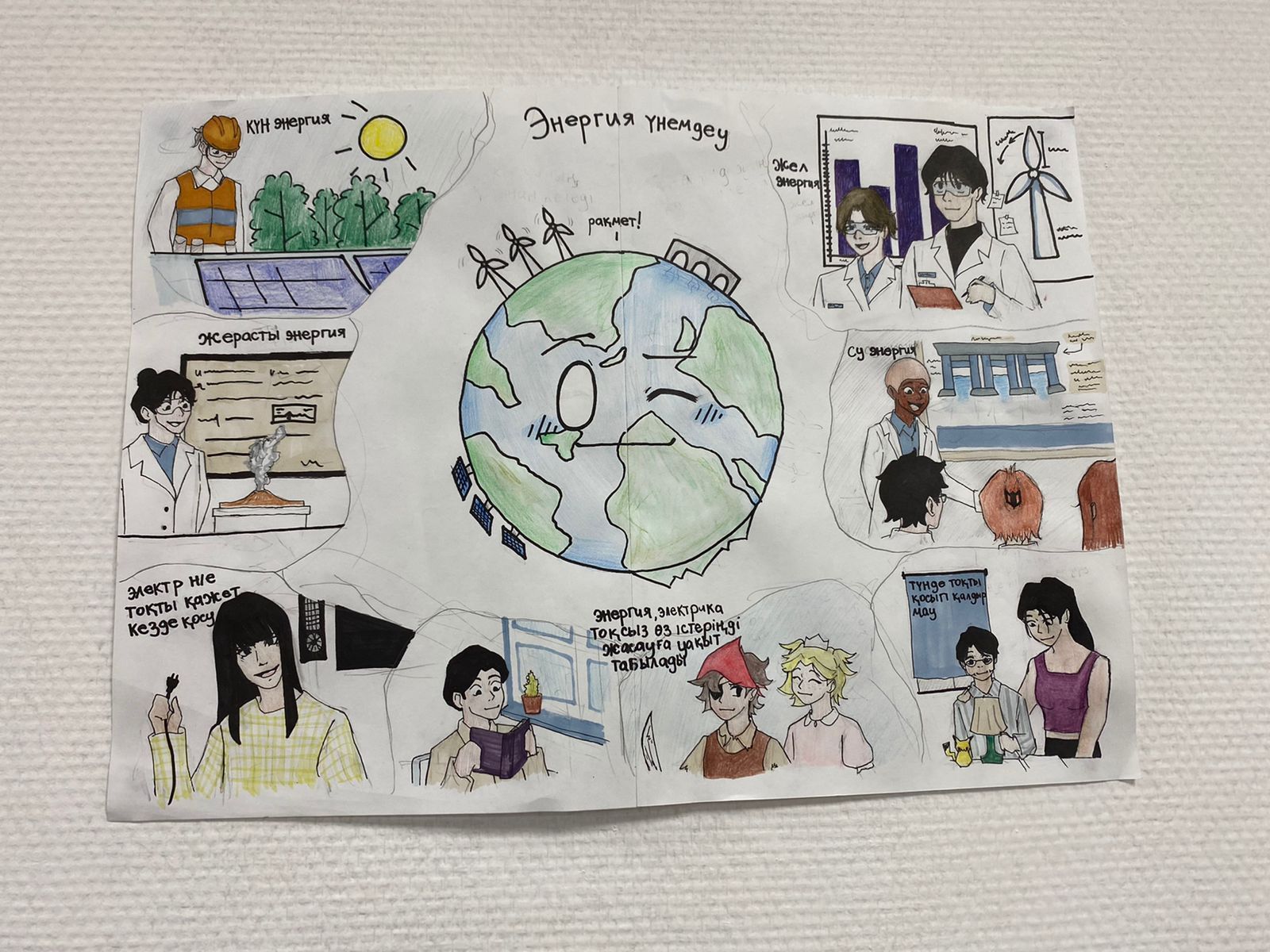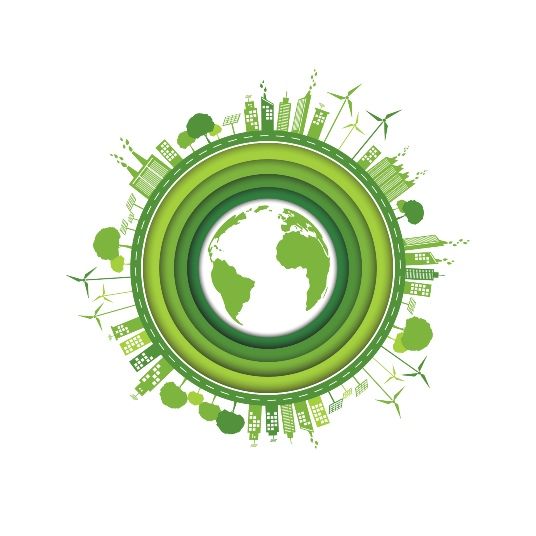The recycling of materials as well as the search for a new energy resource remains at the moment the only means to save our future generations
-
One Small Step for you,One Big step for Sustainability.There is always Something to improve !
-
The recycling of materials as well as the search for a new energy resource remains at the moment the only means to save our future generations
-
To secure a sustainable future for generations to come, it's imperative to prioritize both the recycling of materials and the quest for innovative energy sources. Recycling stands as a cornerstone in our efforts to mitigate environmental degradation by reducing waste and conserving resources. Implementing comprehensive recycling programs, incentivizing responsible consumption, and investing in advanced recycling technologies can significantly alleviate the strain on our ecosystems. Concurrently, diversifying our energy portfolio is paramount. Exploring renewable sources such as solar, wind, hydro, and geothermal power not only reduces reliance on finite fossil fuels but also mitigates greenhouse gas emissions, curbing climate change. Embracing energy-efficient practices, incentivizing clean energy initiatives, and fostering international collaboration are pivotal steps towards safeguarding the prosperity of future generations. By embracing these solutions, we pave the way for a more sustainable and resilient world, ensuring a legacy of abundance rather than scarcity for those who will inherit the planet after us.
-
In addition to recycling materials and transitioning to renewable energy sources, another critical solution lies in embracing circular economy principles. Unlike the traditional linear economy of "take-make-dispose," a circular economy aims to minimize waste and maximize the use of resources by promoting reuse, repair, remanufacturing, and recycling. By designing products with longevity and recyclability in mind, businesses can reduce their environmental footprint while fostering economic growth. Encouraging consumers to choose durable, repairable goods and supporting initiatives that facilitate product refurbishment and resale can further enhance the circular economy's impact. Additionally, promoting sustainable production practices, such as eco-friendly packaging and responsible sourcing of raw materials, can help close the loop on resource consumption. Embracing a circular economy not only conserves resources but also fosters innovation, creates jobs, and builds resilience in the face of global challenges.
-
Dear partners, your sharings are are great. i've read in deep learning by M.Fullan that "teachers need a broad multidimensional knowledge that allows them both to assess situations quickly and to draw upon a variety of repertoires for intervention. Individual teachers possess such knowledge, but it is largely invisible to the field as a whole". Indeed, individually ready-to-grow teachers in their endeavours to share knowledge creation provide compelling learning experience.
Let me share with an image as well
One of SDGs, depicted by my daughter.jpeg

-
since I am a life and earth sciences teacher, we often organize ecological outings with our students, some of the parents accompany their children with us (of course with their own means of transport (, therefore our team of 'in teachers and regional management), take this opportunity to share our objectives with them and thus expand our cooperation with them, moreover I teach in a small community called Jendouba (Northern Tunisia) where the majority residents know each other
"Empowering students through engaging education, fostering environmental consciousness, and advancing scientific literacy. Committed to shaping future leaders in Life and Earth Sciences."
-
Transportation alternatives in Puerto Rico face significant challenges due to a combination of infrastructure issues, limited public transit options, and geographic constraints. The island's public transportation system is underdeveloped, with infrequent and unreliable bus services that do not adequately cover rural or suburban areas. Additionally, the Tren Urbano, a single-line metro system, only serves a small portion of the population in the San Juan metropolitan area.
The mountainous terrain and dispersed population make expanding public transit infrastructure costly and logistically complex. Furthermore, the high reliance on personal vehicles leads to severe traffic congestion, particularly in urban centers. The lack of comprehensive and efficient transportation alternatives not only hampers daily commutes but also limits economic opportunities and access to essential services for many residents.
I think we need to expand and enhance ferry services to connect coastal and island communities, reducing the reliance on road travel and providing efficient alternatives for intercity and inter-island transportation. This could be amazing.
-
Thank you dear coleague

"Empowering students through engaging education, fostering environmental consciousness, and advancing scientific literacy. Committed to shaping future leaders in Life and Earth Sciences."
-
"Strive for Sustainability: Every Step Counts!"
"Small Changes, Big Impact: Let's Step Towards Sustainability!"
"Taking One Step Closer to a Greener Future!"
"Progress, Not Perfection: Every Step Towards Sustainability Matters!"
"One Foot Forward, Towards a Sustainable Tomorrow!"
"Step Up for Sustainability: Let's Walk the Talk!"
"Embrace the Journey: Step by Step Towards a Sustainable World!"
"From Little Steps to Giant Leaps: Building a Sustainable Future!"
"Walk Towards Sustainability: One Step at a Time!"
"Step Into Sustainability: Each Move Makes a Difference!" -

Continuous improvement is crucial for advancing sustainability efforts. From reducing waste to conserving resources and implementing eco-friendly practices, every small step plays a part in creating a significant positive impact on the environment. By adopting a mentality of ongoing enhancement, we ensure that we are constantly working towards better solutions and actively contributing to the promotion of sustainability for our planet and the well-being of future generations.
-
Hi Antonia,
Hope everything is going well. Thank you for emphasizing the importance of continuous improvement in sustainability efforts. I completely agree that every small step, from reducing waste to conserving resources and adopting eco-friendly practices, contributes significantly to positive environmental impact. I'm a big fan of being an eternal student to be a great teacher.
By fostering a mindset of ongoing enhancement, we can continually strive for better solutions and make meaningful contributions to sustainability. A mindset to create in our students. We are their role models. This approach not only benefits our planet but also ensures the well-being of future generations. It's inspiring to see a collective commitment to making a lasting difference.
Best,
Mr. Bryan -
@MERIA2fb03b24d1
very interesting
Thank you Meriam"Empowering students through engaging education, fostering environmental consciousness, and advancing scientific literacy. Committed to shaping future leaders in Life and Earth Sciences."
-
Recycling materials and exploring alternative energy sources stand as crucial pillars in safeguarding the future for generations to come. Through recycling, we mitigate the strain on natural resources, curbing the depletion of finite materials while minimizing waste and pollution. This sustainable approach not only conserves precious resources but also reduces the environmental impact of manufacturing processes. Moreover, the quest for new energy resources offers a lifeline amidst the looming threat of climate change. By investing in renewable energy sources like solar, wind, and hydroelectric power, we can transition away from fossil fuels, mitigating greenhouse gas emissions and combating climate change. Embracing these practices isn't just an environmental choice; it's a moral imperative to secure a livable planet for our descendants.
-
@MERIA2fb03b24d1
In safeguarding the future for generations to come, a multifaceted approach is imperative. Beyond recycling materials and pursuing alternative energy sources, education and awareness are pivotal in instilling a culture of environmental responsibility. Conservation efforts, coupled with innovative technologies, can preserve natural habitats while driving progress towards sustainability. Strong environmental policies and regulations provide a framework for accountability, while transitioning to a circular economy model minimizes waste and promotes resource efficiency. By embracing these strategies collectively, we can pave the way for a more sustainable future, ensuring a thriving planet for generations yet to come. -
@OUSSAfd6aa665af
In cultivating a culture of sustainability within schools, a range of practical initiatives can be employed to engage students and staff alike. By implementing waste reduction programs, such as recycling and composting, and encouraging the use of reusable materials, schools can significantly minimize their environmental footprint. Additionally, promoting energy conservation practices, such as turning off lights and optimizing heating and cooling systems, fosters a more efficient use of resources. Green transportation options, like walking, biking, or carpooling, contribute to reducing carbon emissions associated with commuting. Incorporating outdoor learning spaces and school gardens not only connects students with nature but also instills a deeper appreciation for environmental stewardship. Integrating sustainability topics across the curriculum ensures that students gain a comprehensive understanding of environmental issues and are equipped to address them effectively. Furthermore, adopting green building practices and fostering community engagement further reinforces the commitment to sustainability within the school community. Through these initiatives, schools can play a pivotal role in shaping environmentally conscious individuals who are empowered to create positive change in their communities and beyond. -
@Bousl2336873cb4
One effective solution to combat the pervasive issue of disinformation in the digital landscape is the promotion of collaborative fact-checking initiatives. By encouraging collaboration among media organizations, fact-checking agencies, and social media platforms, citizens can access reliable information and debunk falsehoods more efficiently. Such initiatives not only enhance the credibility of information but also foster a culture of accountability among content creators and platforms. Additionally, incorporating these efforts into citizenship education can instill a sense of responsibility in individuals to verify information before sharing it, thereby contributing to a more informed and trustworthy digital environment. -
@Bousl2336873cb4
Really love the idea of Continuous improvement!
The first idea I came up with was never the last for my class.
I changed every semester to upgrade myself, and so did my students.
It's the way to sustainability! -
Dear Collegue
This is the same strategy that I often apply and that we call differentiated pedegogy"Empowering students through engaging education, fostering environmental consciousness, and advancing scientific literacy. Committed to shaping future leaders in Life and Earth Sciences."
-
@Bousl2336873cb4
Hi,
'One small step will definitely has a big impact on sustainability', I completely agree with this statement. In my school, pupils are offered fruits daily, the Eco Club which consists of several educators motivate students to throw the banana, oranges peel in the Compost Bins which located in the school premises. The compost is used in the Medicinal Garden of the school. The students are also provided with one bottle of water daily. We are planning to create an Eco-friendly school and pupils with the help and guidance of teachers will use these plastic bottles to create pots for plants. The Eco-club is also integrating the community in the project, there is a mechanic near the school, there are lots of used tyres at his place, we are planning to take a few from him and create a sort of 'chair' for pupils which will be placed in the school yard. These initiatives will promote sustainability. -
Hello Housna
Good initiative, you aim to create a school like the Green School Bali in AndonisieLink:
"Empowering students through engaging education, fostering environmental consciousness, and advancing scientific literacy. Committed to shaping future leaders in Life and Earth Sciences."